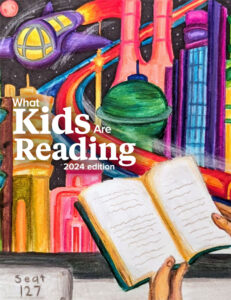June 11, 2015
Demanding that you “have it your way” could come across as pampered and self-centered, but for educators striving to deliver education that meets their state standards, having it “your way” really means having what you need to successfully teach to your state’s standards—no small task in an environment where educational standards are changing just about everywhere.
Here’s a bit of good news: Renaissance’s next wave of learning progression development will let educators in every state throughout the country start their year with a learning progression specifically developed to meet their state standards. Yes, in fall of 2015, every state will have its own learning progression for reading and math, customized to the state’s current set of standards.  Customers will see their state-specific learning progression at the heart of the Renaissance Star 360® assessments, Renaissance Accelerated Reader 360®, and Renaissance Accelerated Math®.
Customers will see their state-specific learning progression at the heart of the Renaissance Star 360® assessments, Renaissance Accelerated Reader 360®, and Renaissance Accelerated Math®.
The work of developing a state-specific learning progression has been an immense undertaking. It began with understanding the standards themselves. For each state, we studied what makes that state’s standards unique. We asked, what are the expectations for skills, knowledge, and practices—and when are they expected to be met? We also asked the big question that helps teachers deliver instruction aligned to the standards: How can this information be used to transform expectations into a progression of skill development that advances educators and students to their end goal?
With this comprehensive understanding of the state’s standards, our content developers next began the process of actually building the state-specific reading and math learning progressions, starting with the kernels of learning development: the skills. This means that, for each and every standard, our developers identified the skills inherent in the standards. These became the building blocks, with the ordering of the learning progressions informed by nearly ten years of experience and data from millions of assessments. (For readers who want to take a deeper dive into the development process, this page of our website includes white papers and more on the Core Progress learning progressions.)
What does this mean for you? Whether you are an educator in Virginia, Indiana, Montana, Alabama, Rhode Island, Texas, Washington, Maine, or any other state—you will start the 2015–2016 year with a clear articulation of skills for your grade and state. You will also start with a clear view of the context for those grade-level skills, because you will be able to see expectations from the previous grade and know where your journey with your students through the end of the year will take you.
You can also start your year with an understanding of where each of your student’s performance is in relation to your standards. How so? Each state-specific learning progression is placed on the STAR scale. After administering the assessment, the resulting scaled scores tell you where each student is performing in relation to the standards. From the beginning of the year, you will know which students are starting on track and which may need additional support to start their year of learning. And you will be prepared with tips and ideas for teaching targeted skills as well as thousands of new instructional resources.
At Renaissance, we are students too. The work of developing customized learning progressions for each state has required learning about and assigning meaning to the differences each state calls out, yet the work is ongoing. This deep knowledge will be continually enhanced and honed by your feedback on the learning progressions as well as the empirical data we capture on student practice and achievement. Essentially, whenever you use Renaissance software with your students, you inform the deeply powerful work of understanding how learning advances.

